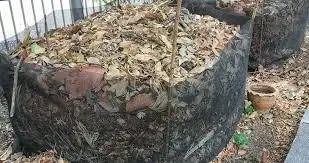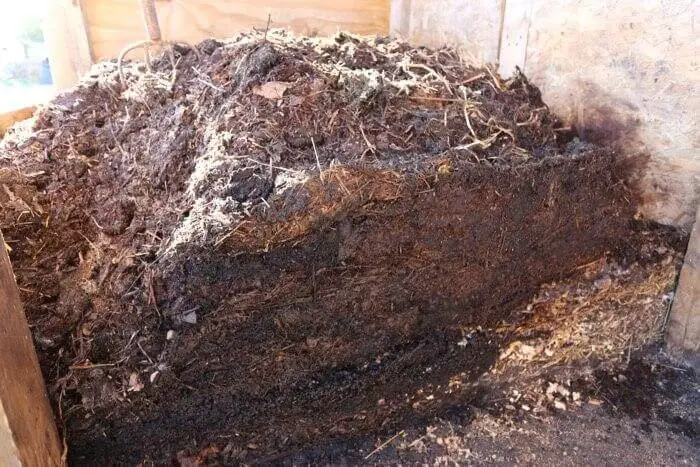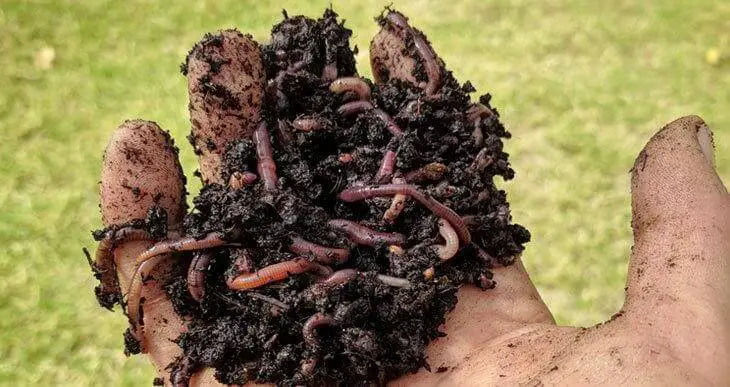Contents
Composting can be fun, especially when it’s adding value to your garden. While many people have started composting their food scraps, it has resulted in a cleaner and greener environment. In fact, composting has become a part of the routine for many households. One thing that remains an issue with composting is the low temperature. Do you have any idea how to manage your compost in winter?
If not, we are here to provide you a solution, and if you do, then too, you can read along. You might find something new to add while composting or some awesome trick that can ease your work. Before that, let’s learn something about composting.
What Is Composting?
When you hear the word compost, what is the first thing that strikes your mind? A humus-like material to add to your plants. The process of preparing it is known as composting. If you are looking for a proper definition, here it goes. A method of converting organic solid waste into reusable compost is known as composting. It is an aerobic process, which means it requires air for conversion.
What Are The Benefits Of Composting?
You got to know what composting is. But why would you do composting? Well, there are several benefits of composting that you can get with this process. Here are some of them.
- The manure produced after composting is rich in minerals and is best for soil. It prevents diseases and acts as a fertilizer to protect your plant from pests and other microbes.
- Since the compost will act as a fertilizer, you won’t need any chemical fertilizer for your plant. So you can enjoy the organic produce of your plant.
- The pH value of the compost is neutral, which decreases the methane emission. The process will reduce the carbon footprint, which is the best thing for the environment.
- Composting is the process that removes the scrap from your house and enhances the quality of the environment. We don’t think there can be a more substantial and considerable benefit of composting.
- Most of the greenhouse gases escape from the materialistic waste like paper, rubber, glass, polythene, and packaging fiber. Therefore, when you compost all of them and turn them into manure, there won’t be any greenhouse gases. This will save the demolition of the ozone layer in the atmosphere.
- What could be cheaper than the product made out of scrap? Nothing, right? Exactly, the compost you will get after the process will be free of cost. Another option is buying the pre-made compost from the market with pesticides.
With all these benefits intact with composting, it will definitely be a fun activity! So, you can simply look forward to doing it every few days.
What Is The Process Of Composting?
When you add your food scraps to a composting bin, microorganisms come into the picture. They eat organic waste and break it down into small pieces. The process repeats itself until the manure is formed. When microbes are breaking the solid particles, they require an adequate amount of air and water to breathe and multiply, respectively. The emission of carbon dioxide and heat makes the temperature of the composter really high.
Why Is It Challenging To Do Composting In Winters?
Since we are here to tell you about how to manage your compost in winters, you should know about the problems before getting the solution. So, here are the challenges you will face in winter while composting.
- In the places where the temperature can go below the freezing point, the compost can become dry or even freeze.
- The microorganisms are dormant in the winter season. Therefore they would not like to eat your kitchen waste. You can use Kitchen composter in winter.
- If you somehow manage to introduce microbes in the waste, they wouldn’t get the required oxygen level to produce carbon dioxide.
- With the water temperature being low in winters, microorganisms do not multiply easily. This makes the composting process slow, and you might have to wait for a longer time.
If you go through all the points, the issue somehow points out the slow nature of the process. That doesn’t mean you should pile up the waste of your house in winters and wait for summers. If there is a complication, you will find a solution, as well. So, let’s move ahead to find the ideal solution!
5 Tips For Managing Compost During Winters
You might have understood the challenges you will have to face while composting in winters. But, we are here to provide a solution. Now, here are 5 tips for managing compost during winters.
1. Keep The Bin Warm
The ideal temperature required for microorganisms to start acting is pretty high. If you live in a place where chilly winters are typical, try to keep the temperature of the composter bin high. Now, there are numerous ways to achieve that. You can either rely on sunlight or provide artificial heat. How to provide artificial heat?
Keep the composter near chimneys, which is hot enough to give the required temperature. You can also apply blowers to your bin, which will produce warm air suitable for microorganisms. Warm air contains a large amount of oxygen, which helps the microbes to breathe and perform their activity. This will keep your composting process in action during winters as well.
Also Read : How To Make A Composter Hotter
2. Reduce The Size Of Waste Material
Due to unfavorable conditions, the process of composting slows down in winter. You can say that microorganisms are a bit lazy in winters. Well, you cannot increase their speed, but you can surely make their work easy. How would you do that?
The microbes break the organic waste material into small parts. So, what you can do is cut/slice the waste material as much as you can. If you consider a fruit scrap, you can easily cut it into small pieces. When it comes to eggshells, you can break them down by hands. The process of reducing the size of waste material will make the work of microbes easy. Therefore, you will be able to procure compost in winters as well.
3. Add Dry Leaves And Other Debris
Waste material is rich in nitrogen. Therefore air adds carbon to it to provide suitability for your soil. During winters, the presence of carbon is almost negligible, making the compost unsuitable for the soil. Dry leaves and plant debris contains enough carbon to provide help. Therefore, you need to add them to obtain a good mixture of carbon and nitrogen. The combination will produce suitable manure that will add value to the soil.
They will also help in keeping the temperature of the compost as per requirement. If you need a high temperature, you should add a large number of dry leaves. This will keep your manure safe and ready to use during springs.

4. A Large Pile Of Compost Would Be Necessary
When you are adding compost to the bin, make sure the compile reaches the length of 3-4 feet. The reason for maintaining the massive pile of compost is to trap the injected heat and air particles. If the heat escapes the pile, the compost will start freezing, and you will have nothing in springs.
Don’t forget to sprinkle water when you add each layer of compost in the bin. The water will add moisture to the manure and help it to remain wet but not soggy. Another important thing is to add the topsoil to the manure. It will prevent the odor from the pile. Of course, it’s necessary to take care of the smell, knowing the fact that you have to keep it till spring.

5. Add Some Worms
Now, there might be many questions running in your mind. Why worms, and how would you get them? We won’t be able to help you with the second part, but we will surely answer the first question. Worms act similar to the microbes, and they turn the solid waste into fertile and dark soil, which is optimum for plants. The adequate conditions will remain the same, but the processing speed will change. Since worms are bigger than microorganisms, they will decompose the waste faster. They will also produce less heat, making the manure easy to process. About the part of how to get worms, topsoil would be a good place to find them.

Composting, Anytime
Composting adds value to your garden, and it’s a fun activity as well. It has helped the environment to regain it’s lost value. Therefore, change in season should not be a barrier to having fun while composting. We hope these tips will help in the process of composting during the winter season. If you have still not started composting, you are missing the fun.
Want to know more about gardening ?
Fill in your email address in the form below and you'll receive all the latest updates directly in your in-box.
Thank you for subscribing.
Something went wrong.